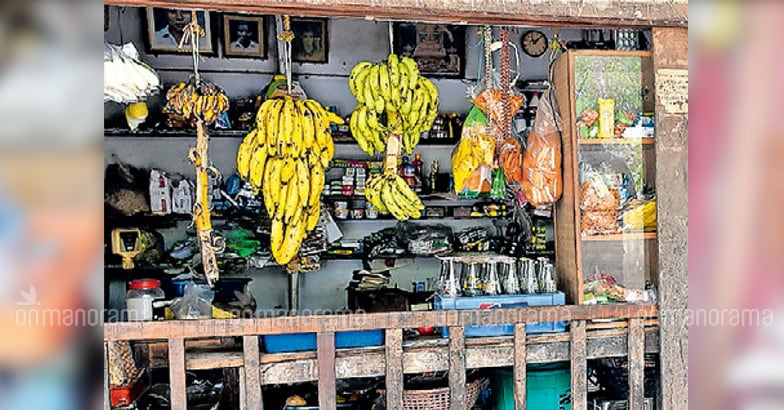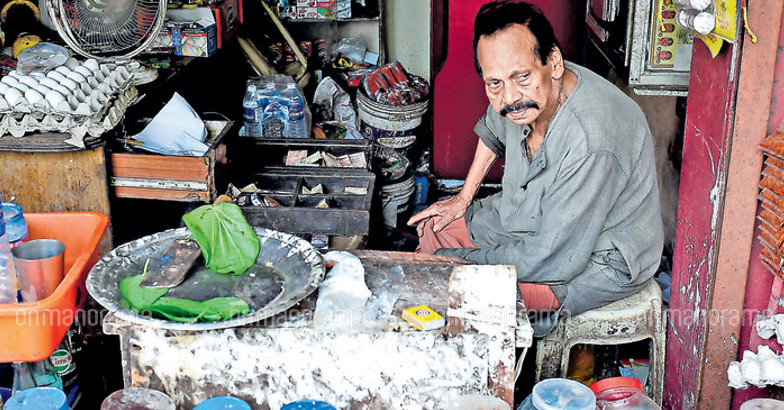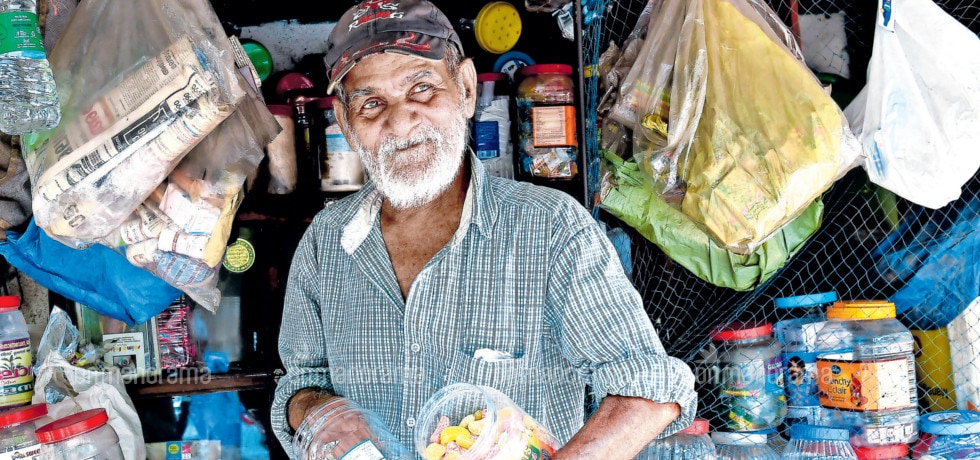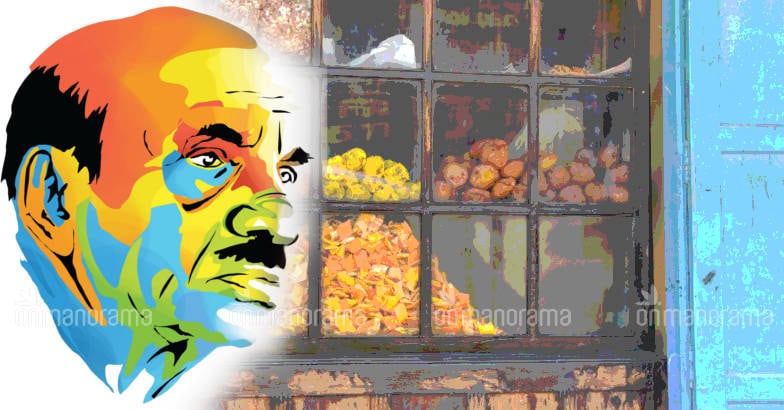Little shops in Kochi stocked up on nostalgia

Mail This Article
The port city of Kochi has grown phenomenally in size and population in recent years. Although the city has become unrecognisable from a decade ago with high rises, supermarkets, star hotels and the newly introduced metro rail, there are a few things that strike a chord of nostalgia in here. The list includes not just the streets of Fort Kochi or colonial era buildings, but some small shops.
For many old timers who have witnessed the city’s transformation, these little shops, which sell tea, soda, sarbath or buttermilk, tucked into the nooks and corners, are a connection to a time when Kochi had not yet come under the grip of rapid urbanisation.
For people who migrate to the cities from villages, the combined fragrance of tobacco, pan, lemon, ancient wooden money boxes and ripe bananas lingering in these stores is a reminder of simpler lives they left behind to make a living.
These shops were a common sight in Kochi until around two decades ago. There were a few at every important town centres like Kaloor, Palarivattom and Vyttila. Old timers remember the DD Angadi in Kadavanthra which was a centre of such shops were locals gathered in the evening after a hard day’s work for a chat around the yellow light of Petromax lanterns. Men and women would buy the grocery while marriage brokers to small time financiers would frequent them for business. Such practices and public spaces have withered away with time. Those who dared to survive the mammoth growth of Kochi into a metropolitan beast, now sell lottery tickets along with tea, cigarettes and pan.
Chandrasekharan’s shop at Kumbalam
The old timers in Kumbalam still remember the rush at Chandrasekharan’s shop. People used to travel from distant towns to buy his fair. It was a different era when travel was tough due to sparse public transport. People would walk or hire a rikshaw to reach the store.

After Chandrasekharan died, the store was renovated to add space for stationary items. The doors are still the old wooden flap doors and items are still sold wrapped in old newspaper. The tiled roof has a not changed. A strand of hand-made choir dangles from the roof from a ball of thread. Like a forlorn connection to the times gone by.
Padannayil’s laughter shop at Thrippunithura
He is familiar to Malayalis as a comedian who has portrayed memorable characters in many movies. K. T. S. Padannayil has been running his little store for last forty eight years at Thrippunithura. He says people’s tastes have not changed much except that the migrant workers from the other states who frequent the shop prefer a new ‘Bengali Beedi’ to the local variety. The rest of the fair still consists of sarbath, fried prawns, and other sweet and salted snacks.

Many prefer pan to cigarettes, he observes, especially the older men. He serves the traditional pan—betel leaves with a touch of lime wrapped around pieces of areca nut. He cracks and cuts the areca nut himself. His quick wit and jokes are the added bonus.
Padannayil built the store in 1970 from the money saved from theatre work. He refuses to shut shop even after enjoying a busy and successful career in the movies. He says, “It is a special feeling to sit inside a shop which I built lovingly over the years with much hard work. I will never stop doing this.”
Abdu and the lozenges in the glass jars
Abdu’s store on Koothapadi road at Thammanam smells of the sweets in the glass jars arranged neatly on the shop’s window sill.

It’s not just the smell, the taste and the tantalizing colours of the sweetmeats in the jars but the memories of a delightful past that draws customers to Abdu’s thirty year old store. Koothapadi has changed drastically in the last decade but Abdu’s shop remains the same.
Abdu says, “Those schoolkids who bought sweets return as adults to relive their childhood memories. For me, they never grow up. They remain the vibrant, noisy children that they once were. Sometimes they bring their kids with them. They love my store. Some say that Abdu’s store is the only thing that has been untouched by time. I considers this an honour. For this also means that I, like my little store, am also timeless and young.”
The place that once served Basheer
John Paul, a veteran Malayalam script writer and a permanent resident of the city who has closely witnessed the decades of change, points out that not all little stores perished. There are a few stores which adapted to the changing city and transformed into modern shops selling stationary goods and then into wholesale and retail shops and huge commercial complexes

He recalls the time when Vaikom Muhammad Basheer opened a book shop near Boat Jetty. Basheer’s business was a dud and on many days he could not make enough to buy food. On such occasions it was the neighbouring little stores that kept him going with beedis and bananas.

